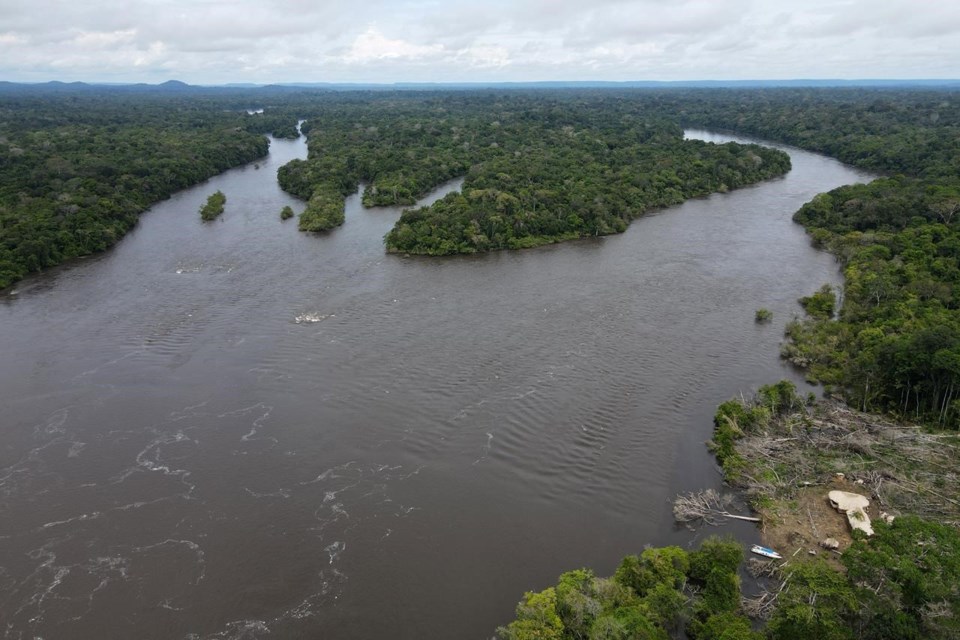RIO DE JANEIRO (AP) — Federal courts in Brazil have ordered a New Jersey-based fishing tourism company to leave a remote Indigenous area of the Amazon after prosecutors filed charges of operating without government authorization and manipulating Indigenous people, which is illegal in the country.
The Attorney General’s office in Santarem alleged in the civil lawsuit that the company Acute Angling invaded an Indigenous territory where it set up a luxury fishing lodge without either proper consultation with Indigenous communities or approval from federal Indigenous and environmental agencies.
Preliminary injunctions in both lower and upper courts ordered Acute Angling to stop operating in the vast and isolated Wayamu region, an Indigenous territory roughly the size of Ireland.
“The activity as far is known, has no authorization from the government for its operation. It is about the exploitation of economic activity within Indigenous lands that, to be legitimate, must be preceded by prior free and informed consultation with the Indigenous peoples,” Judge Clécio Alves de Araújo wrote on September 28, in a ruling later upheld by a higher court.
The Associated Press contacted Acute Angling´s owner, Paul Reiss, by phone and email. Reiss declined to answer questions, but in legal filings the company has previously denied any wrongdoing.
Based on the testimony of Indigenous people, prosecutors in court documents accuse Acute Angling of striking deals with some local leaders, who receive small sums of money in exchange for access to the territory.
The company also promised to pay $800 per week as a “collective benefit” for the 15 Indigenous communities along the Mapuera River, a population of about 2,000 people, according to the lawsuit.
According to the same filing, that sum represents 1.4% of company revenue for the scheduled fishing season. Acute Angling charged $6,995 per tourist for a seven-day trip, it said.
In a response filed with the court, the company said it pays communities the equivalent of $1,090 for each Indigenous person in the Mapuera area where it operates. The company attached pictures of local people holding bundles of cash inside plastic bags in the court record.
After the legal ruling, Acute Angling deleted from its website the tour to Mapuera River. The company on its website still offers similar packages in another part of the Wayamu region. The river is called Jatapu, but on the website it appears under the name Travessao River. On the site, the location where the American company has operated for several years is described as an “exclusive Indian reserve.”
The local Aymara Association, which represents three Indigenous peoples in the region, also says Acute Angling is still operating fishing tours in the Wayamu, in an October report.
The association accuses the company of luring villagers through loans and of taking tourists out to hunt. The latter would be a crime in Brazil. The report also said the lodge operates without proper sewage or trash facilities, and both are thrown in the river.
Outside the Wayamu, Acute Angling also faces criticism from Indigenous groups along the Negro River, who say it has operated there through informal deals.
“The company negotiated with a leadership without consultation and the approval of other communities,” Marivelton Barroso, head of the Rio Negro Federation of Indigenous Organizations, told the AP via text message. “They shouldn´t be in Indigenous territories.”
___
Associated Press climate and environmental coverage receives support from several private foundations. See more about AP’s climate initiative here. The AP is solely responsible for all content.
Fabiano Maisonnave, The Associated Press



